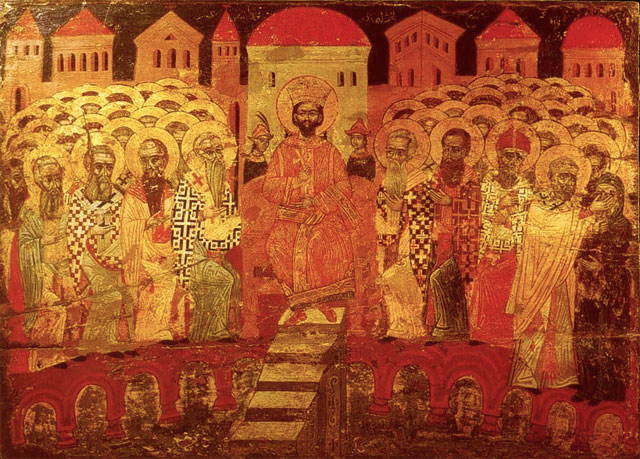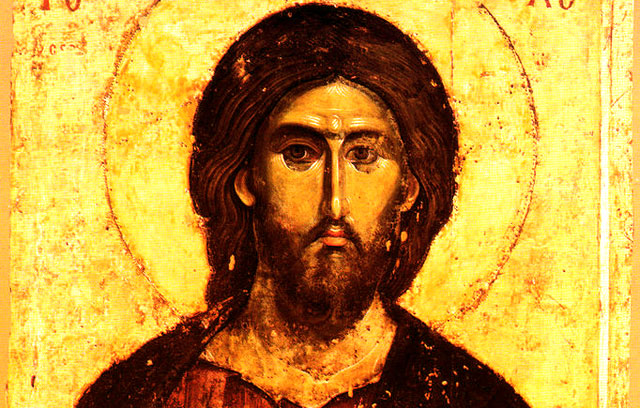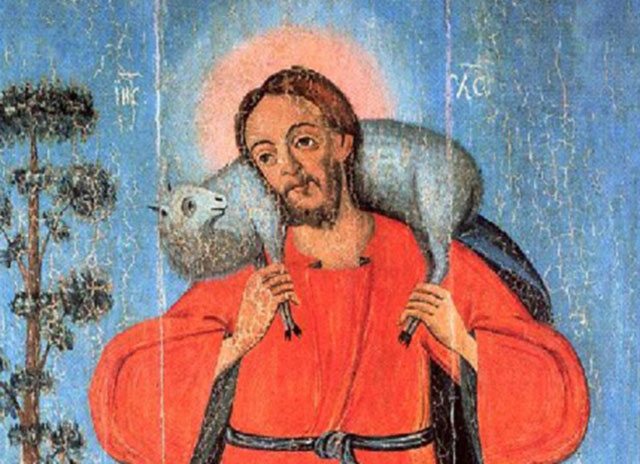Then he opened their minds so they could understand the Scriptures. (Luke 24:45)
On the evening of his resurrection, the Lord Jesus encountered two disciples on the road to Emmaus. They were downcast and did not recognize who he was. Jesus asked about what they were discussing and the cause of their disquiet. They explained. Then Jesus said to them:
“How foolish you are, and how slow to believe all that the prophets have spoken! Did not the Messiah have to suffer these things and then enter his glory?” And beginning with Moses and all the Prophets, he explained to them what was said in all the Scriptures concerning himself. (Luke 24:25-27)
That same evening, Jesus appeared to Peter and the other disciples back in Jerusalem and said, “This is what I told you while I was still with you: Everything must be fulfilled that is written about me in the Law of Moses, the Prophets and the Psalms.” Luke adds, “Then he opened their minds so they could understand the Scriptures” (Luke 24:45).
Jesus taught that the Law and the Prophets and the Psalms — which is to say, the Old Testament Scriptures — are about him. In his Sermon on the Mount, he said, “Do not think that I have come to abolish the Law or the Prophets; I have not come to abolish them but to fulfill them” (Matthew 5:17). To the unbelieving Jewish leaders, he said, “You study the Scriptures diligently because you think that in them you have eternal life. These are the very Scriptures that testify about me, yet you refuse to come to me to have life … If you believed Moses, you would believe me, for he wrote about me” (John 5:39-40, 46).
The author of Hebrews shows us the same thing when he quotes Psalm 40:7 and applies it to Jesus. “Then I said, ‘Behold, I have come — in the volume of the book it is written of me — to do your will, O God’” (Hebrews 10:7
NKJV). The entire Old Testament, the “volume of the book,” is about Jesus.
This has profound implications for how the Old Testament Scriptures ought to be interpreted. For one thing, it means that any reading of the Old Testament that contradicts the revelation of Jesus Christ in the New Testament is a misreading. For another, inasmuch as Jesus is the “exact representation” of God (Hebrews 1:3), that all the fullness of the Godhead dwells in him in bodily form (Colossians 2:9) and that whoever has seen him has seen the Father (John 14:9), then any reading of the Old Testament that portrays God in a way that contradicts how God is portrayed in Jesus Christ is likewise a misreading.
The manner in which we read the Old Testament will differ from how we read the New Testament. In the New Testament, Christ is presented plainly in the text. In the Old Testament, Christ is just as present as in the New, but not as plainly. We need to read the Old Testament in a different way, through the eyes of Christ.
After the Emmaus disciples had been with Jesus, they asked each other, “Were not our hearts burning within us while he talked with us on the road and
opened the Scriptures to us?” (Luke 24:32). This was something they had not experienced before. The Greek word for “opened” is an intensive one and means to open
thoroughly and
completely. It is the same word used about the disciples in Jerusalem later that evening, when Jesus “
opened their minds so they could understand the Scriptures.” Now they could see in the Old Testament what had been there all along, that it is all about Jesus.
We do not find Christ in the Old Testament by a plain, literal reading of the text. A non-literal reading of the Scriptures was nothing new, not even among the Jews of Jesus’ day, but what changed for the disciples was that now they understood the Scriptures through Christ. We can find examples of this in the New Testament Scriptures.We have already noted that the author of Hebrews applies Psalm 40:7 to Christ. In a plain reading of that psalm, it is not about Jesus or Messiah but refers to David’s desire to keep all the Law of God. But the author of Hebrews now reads it with new eyes, as presenting Christ.
For another example, Matthew 2 tells us about Joseph taking Mary and Jesus down into Egypt and bringing him back to Judea after the death of Herod. Matthew records, “And so was fulfilled what the Lord had said through the prophet: ‘Out of Egypt I called my son’” (Matthew 2:15). The prophet he quotes is Hosea 11:1, “When Israel was a child, I loved him, and out of Egypt I called my son.” By a plain, literal reading, Hosea 11:1 refers to God delivering the children of Israel out of Egypt, an event we know as the Exodus. But Matthew understands it as a reference to Christ.
There are many other examples we could turn to, but in Galatians 4, Paul gives us a theological understanding of Abraham’s wife, Sarah, and her handmaid, Hagar, and he explicitly identifies it as an allegorical reading.
For it is written that Abraham had two sons: the one by a bondwoman, the other by a freewoman. But he who was of the bondwoman was born according to the flesh, and he of the freewoman through promise, which things are symbolic [allegoreo]. For these are the two covenants: the one from Mount Sinai which gives birth to bondage, which is Hagar — for this Hagar is Mount Sinai in Arabia, and corresponds to Jerusalem which now is, and is in bondage with her children — but the Jerusalem above is free, which is the mother of us all. (Galatians 4:22-26 NKJV)
Paul tells us the meaning of Sarah and Hagar. They are two covenants. Hagar is Mount Sinai; Sarah is the Jerusalem that is above. Paul was not reading this back into the Old Testament, inserting theological ideas that were not already present in the Scriptures. They were there all along, and Paul simply discovered what was inherent in the Scriptures by reading them through Christ.
The disciples and the New Testament authors understood the Scriptures in a non-literal way because they were reading them with a Christ-centered understanding.
Next time, we will look at how the early Church Fathers followed this same understanding.







